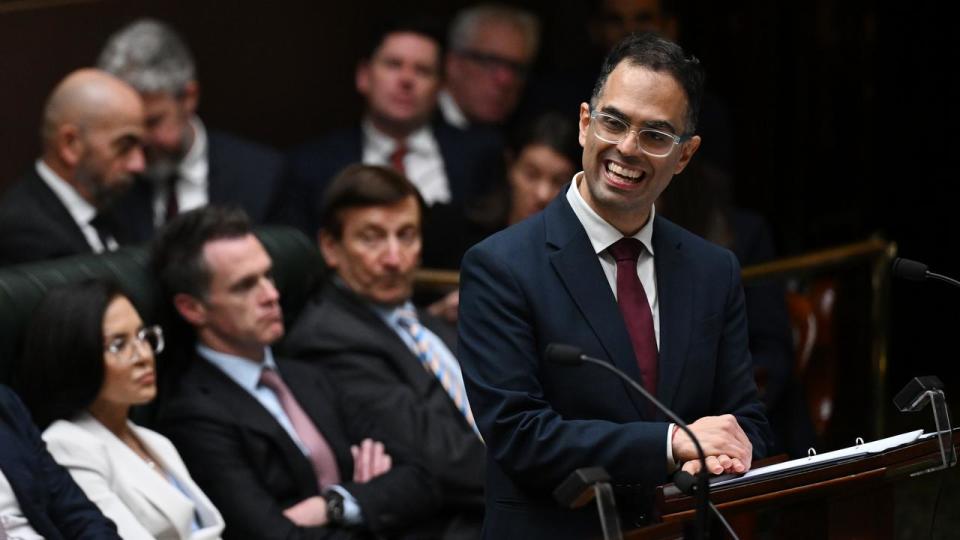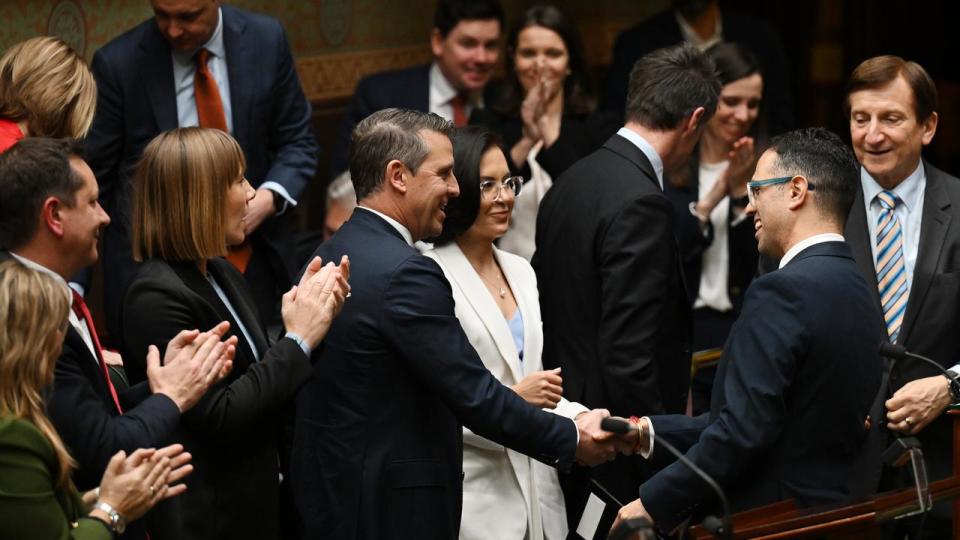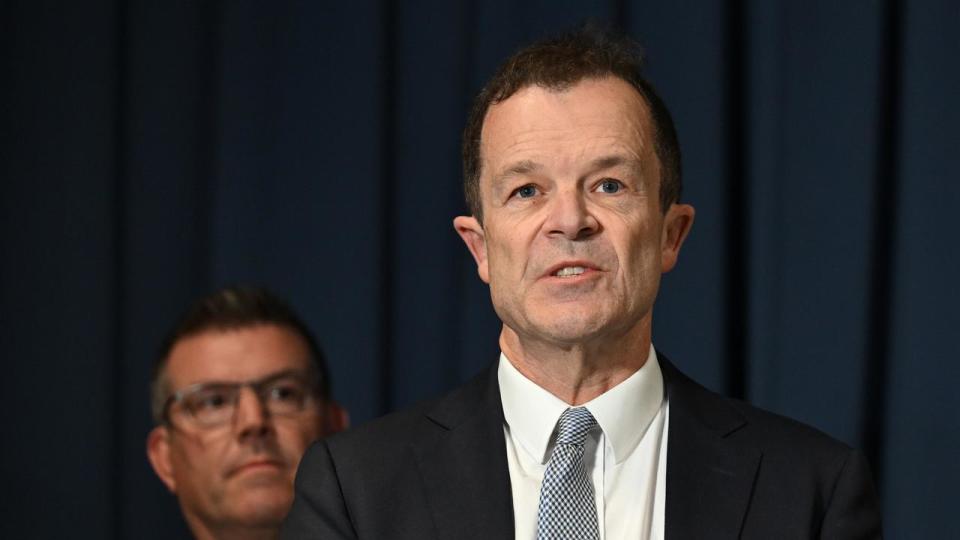Home-building surge in tight budget of 'must-haves'
Thousands of much-needed new homes and measures to keep GP visits free headline a NSW budget that will stay stuck in the red for years to come.
A record $5.1 billion will go towards building social housing in a state budget that focuses on the "must-haves" and offers few sweeteners for cash-strapped families.
Announcing a $3.6 billion deficit as he delivered his second budget on Tuesday, Treasurer Daniel Mookhey blamed GST changes for leaving the state with an $11.9 billion hole over the next four years.

The funding shortfall forced a focus on essentials such as adding to the state's ageing and neglected social housing stock, which peak bodies say is needed to alleviate a spiralling rental market.
Bulk-billing GPs should become easier to find as peace is declared in a fiercely fought tax dispute.
Energy bill relief will be boosted for low-income households and seniors, taking an extra $65 off annual bills.
But cost-of-living relief is otherwise mostly restricted to efforts to help people buy homes, send kids to preschool or expectations of rising wages.
"This is a careful budget in difficult economic times," Mr Mookhey told reporters on Tuesday.
"This budget gets the balance right between making sure the must-haves that NSW can't go without get the investment they need at the same time we wrangle the state's debt under control."
Here's everything you need to know 👇 pic.twitter.com/THJtaKEKxg
— Chris Minns (@ChrisMinnsMP) June 18, 2024
Hopes of a surplus or two before the 2027 election have been extinguished with the GST carve-up, with the treasurer avoiding answers about when the budget will be back in the black.
State debt and interest repayments are also set to balloon.
The $122 billion budget's housing centrepiece pumps $6.1 billion into building 6200 new social homes, replacing another 2200 and fixing 33,500 in dire need of repair.
The sector has demanded 5000 new social homes annually for the next decade.
Surplus government land will also be used for another 21,000 homes, while $520 million will go to crisis services as part of the biggest housing investment in NSW history.
The housing package was declared a step in the right direction by Homelessness NSW, although more needed to be done to meet soaring demand for help and decade-long waitlists for social housing.

The treasurer and health minister hope to kill three birds with one stone with a payroll tax exemption for GPs.
Those bulk-billing 80 per cent of patients in Sydney and 70 per cent in the regions can access the scheme, which should arrest a 10-year low in bulk-billing rates, ease pressure on hospital emergency departments and quell a tax spat with GPs.
But the opposition lamented the lack of extra cost-of-living relief in the budget, despite revenue rises outstripping inflation.
"The government is squandering its revenue increases on unfunded wage deals," Opposition Leader Mark Speakman said.
Infrastructure spending will top $119 billion over four years, including $13.4 billion for the Metro West rail between Sydney and Parramatta's city centres and $5.5 billion for rail to Sydney's second airport.

Fees will be hiked about 40 per cent for working-with-children and NDIS provider checks, bringing them closer to other states' charges.
Extra revenue is expected from a rising number of Powerball and other lottery jackpots and a broader land tax hitting landlords and others for $1.5 billion over four years.
While the land tax change raised concern, CPA Australia commended the budget for being "fiscally prudent".
Business NSW welcomed the focus on housing, urging bipartisan support to prevent delivery delays.
"Overall, the NSW government has resisted the temptation to ramp up spending, which would have a detrimental effect on inflation," chief executive Daniel Hunter said.
Treasury forecasts unemployment to rise to 4.5 per cent in the coming financial year.
But those keeping their job can expect wage rises of about 3.75 per cent.


